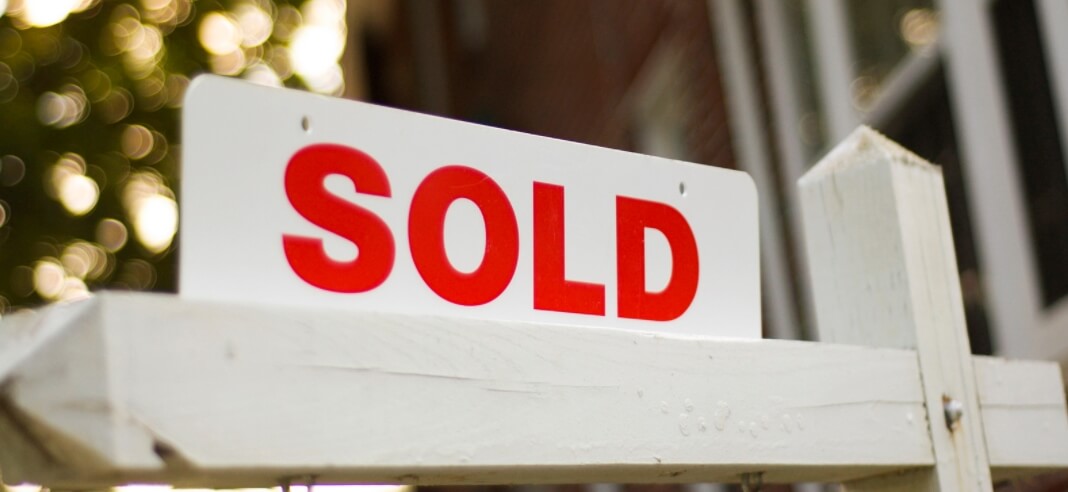Should You Rent or Buy Your Home? A Pros vs Cons Comparison

This is a guest post by Josh Wilson of Family Faith Finance. He goes into detail about the pros and cons of renting your home versus buying, and makes some really great points.
If you’re stuck trying to make this decision, take a few minutes to read what he has to say. Take it away Josh!
—-
Homeownership in the United States has been on the decline since 2004 when it topped out at 69.20% due in large part to the bursting of the housing bubble, which forced millions of homeowners into foreclosure or short sales. The ensuing financial crisis forced mortgage lenders to retrench and tighten their standards, which kept many potential homeowners out of the market. The current home ownership rate in the U.S. is 63.70%. But, that is only half the story.
One of the more newsworthy housing trends in 2016 was the revelation that the vast majority of the millennial population said they prefer renting to owning. When asked why, a large percentage said that owning was not an option because they don’t make enough money and that it was cheaper to rent than to own a home. However, in many areas of the country, if you can afford to rent, you can afford to buy. According to a survey by GOBankingRates, renting is more expensive than owning a home in 42 states.
Regardless of the socio-economic factors that impact homeownership rates, the decision to buy or rent a home is always based on individual circumstances and the particular market. While it might make sense to buy a home in Tennessee, it might not make sense to buy in California. In all cases, the decision should be based on a careful deliberation of the pros and cons of buy vs. renting.
Buying Pros
Building Equity – Perhaps the biggest advantage of buying versus renting is that homeowners build equity over time. With the typical mortgage, a portion of each payment goes toward paying down the principal, or loan balance.
As your loan balance decreases, you increase your ownership in the home. As you continue to make loan payments a larger portion of your payment goes toward paying the principal, which accelerates the growth of your equity in the home. Once your equity reaches 20% of the home’s value, you can access it for your use or refinance your mortgage to obtain a lower interest rate.
Tax Benefits – The tax code allows homeowners who itemize their federal income taxes to deduct mortgage interest and property taxes, which can lower their net cost of homeownership. There are no tax deductions available to renters.
Pride of Ownership – Pride of ownership is more of an emotional advantage, but an important one for homeowners who value it. When you own your home, you have the freedom to enhance it to suit your needs and preferences.
Home improvements can also increase the value of your home, which contributes to your equity growth. Homeownership also offers a sense of belonging and the opportunity to put down roots in the community. Renters are less inclined to get involved in their communities because they are less likely to stay in their home.
Buying Cons
Risk of Financial Loss – After the housing crisis, homeowners quickly realized that equity can be fleeting, especially if they purchased their homes with a small down payment. The bursting of the housing bubble sent home values spiraling down. There are no guarantees home values will increase, leaving open the possibility of having to sell your home at a loss.
Costs of Homeownership – Many new homeowners fail to account for the cost of maintaining their home. The cost of maintaining the yards and repair work can overwhelm some family budgets. Although your costs can vary depending on where you live and the type of home you own, you can expect to pay around 1% of your home’s value in maintenance and repair costs.
Upfront Costs – It takes a large commitment of money to buy a home. Between the down payment and closing costs, you can expect to pay between 5 and 10% in upfront costs – more if your lender requires a higher down payment. There is also the cost of landscaping and furnishings you might need in a bigger home.
Renting Pros
No Maintenance or Repair Costs – When you rent, your landlord is responsible for covering normal maintenance and repair costs. Of course if you break a window or stain a carpet, you would be responsible for the repair. But, if your refrigerator stops working, your landlord has to fix it or buy a new one.
No Roots – If you are more likely to change jobs or relocate for work, renting makes more sense. It’s far easier to get out of a lease than it is to sell a home, especially in a soft market.
No Financial Risk – Regardless of the direction of home prices, renters are not affected, except to the extent that a hot housing market could cause rent prices to increase.
Renting Cons
Not Building Equity – Your rent payment goes to the landlord to help him build his equity in your rental property. If you’re making rent payments for more than 10 years, you are losing out on the opportunity to participate in the growth of real estate, which far outpaces the returns on even the highest savings account rates over that same period.
No Tax Deductions – The cost of renting is not a deductible expense. However, if you use a portion of your home or apartment exclusively for business, you may be able to deduct a proportionate part of your rental cost.
Increasing Rent – Rental prices increased an average 8% in 2016 with some parts of the country experiencing double-digit increases. Landlords can raise the rent each time your lease expires, which is why they prefer nothing longer than a one-year lease. However, it you are a good tenant who pays on time and causes few problems, your landlord may avoid large increases in order to keep you in the property.
Conclusion
So if you’re still reading, then you’re probably still wandering what you should do by now. After all, it’s definitely not easy deciding between renting and buying, and much of the decision depends on your unique financial situation.
At any rate, if you choose to buy, then you’ll have a chance to build your net worth as well as receive tax benefits; however, you’re also at a greater risk of losing that net worth if you can’t handle payments. Additionally, it was mentioned that you could be on the losing end of various maintenance costs. All in all, it could cost you big time, but you have the chance of greatly adding to your value in terms of assets in the long run.
On the other hand, renting poses less of a risk in terms of financial standing down the road, but you have virtually no opportunity to add an asset or build equity to your name. Another negative: your rent payments are at the discretion of your landlord, but you could always move if things get too pricey. You could save up big time while renting, but a portion of your income won’t go towards your net worth at all.
That’s the crux of the argument. Through renting, you don’t really have a long term plan; you’ll be stuck paying into someone else’s equity. Despite this, it offers some financial security because you’ll most likely be spending less on an apartment, allowing you to devote funds elsewhere like your savings account or student loan payments. Through owning, you’re in it for the long run with the chance of building positive equity. It’s a big step towards maintaining a valuable asset in your name. However, you may not be able to pay down other debt as quickly, but you’ll still be moving towards positive net worth. What do you want to do with your money?
By Josh W., a want-to-be personal finance expert at Family Faith Finance. Josh is working to secure his financial future, educate others, and prepare for a hopefully long retirement.





Renting a house sounds like a great idea. I love the fact that it makes it so we won’t ever have to sell our home for a loss. Plus, because we are both in temporary jobs, it’s good to have that flexibility to move if we need to.